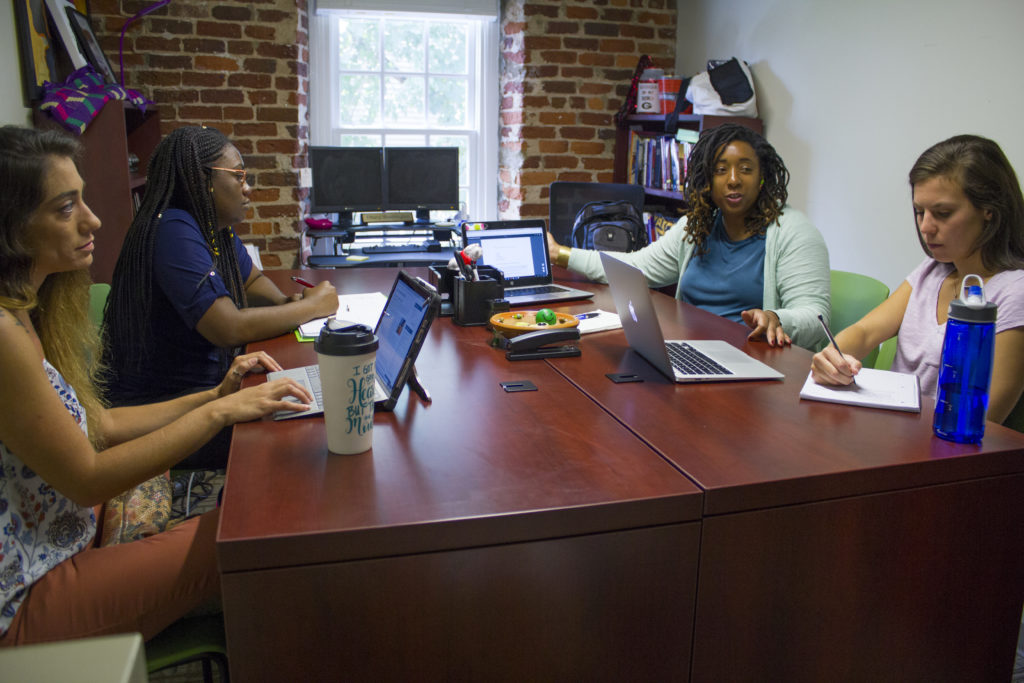How much respite do family caregivers need? Tiffany Washington, an assistant professor in the School of Social Work, will try to find out in her recently funded project.
It’s an important question: About 43.5 million people in the United States provide unpaid care to an adult or child, according to a 2015 study by the National Alliance for Caregiving and AARP.
“My research lives at the intersection of health and aging,” said Washington. “I am interested in how well people are aging. And I am very interested in how caregivers fare. Are they neglecting their own health? Are they burdened? Do they take time for self care?”
Washington has been awarded a $149,980 grant from the Health Foundation of Western and Central New York to find out. The funds will support her research on family caregivers’ use of respite—short term breaks for people who provide, on average, 24 hours of care per week of loved ones.
Partnering with aging-services providers, she and her research team will conduct telephone surveys with about 80 caregivers in western and central New York state to see how often they are using respite services and examine whether their social support networks, among other factors, relate to their access to and desire for respite care. Then Washington will conduct focus groups of caregivers who participated in the survey to delve deeper into caregivers’ experiences. The team includes Sheryl Zimmerman, Mary Lily Kenan Flagler Bingham Distinguished Professor, University of North Carolina at Chapel Hill School of Social Work, and Dr. Thomas Caprio, associate professor in the departments of medicine, nursing, and public health sciences at the University of Rochester Medical Center.
Before she earned her Ph.D, Washington spent five years as a medical social worker, years that made her realize how little she knew about older adults. “I was encountering older adults through my social work role in a health care setting and I wanted to understand their uniqueness.” Her doctoral work and her research focus on gerontology — the study of older adults.
She is the recipient of several research and training grants, including the John A. Hartford Doctoral Fellowship, and has authored or co-authored peer-reviewed articles in The Gerontologist, Social Work in Public Health, and Social Work Research. She has also delivered presentations to national audiences, including The Gerontological Society of America and the American Society of Nephrology.
Washington’s teaching interests encompass aging and health, social work practice in health care settings, generalists social work practice, and service-learning. She designed a dementia caregiving service-learning course that takes an engaged scholarship approach of integrating research, teaching and service to understand the impact of dementia on individuals, families and communities.
While Washington’s training as a social worker did not include much about older people, her own life has provided lessons. Washington grew up in rural Stanly County, North Carolina near her great-grandmother.
“Every great childhood memory of mine in North Carolina: she’s in it.”
